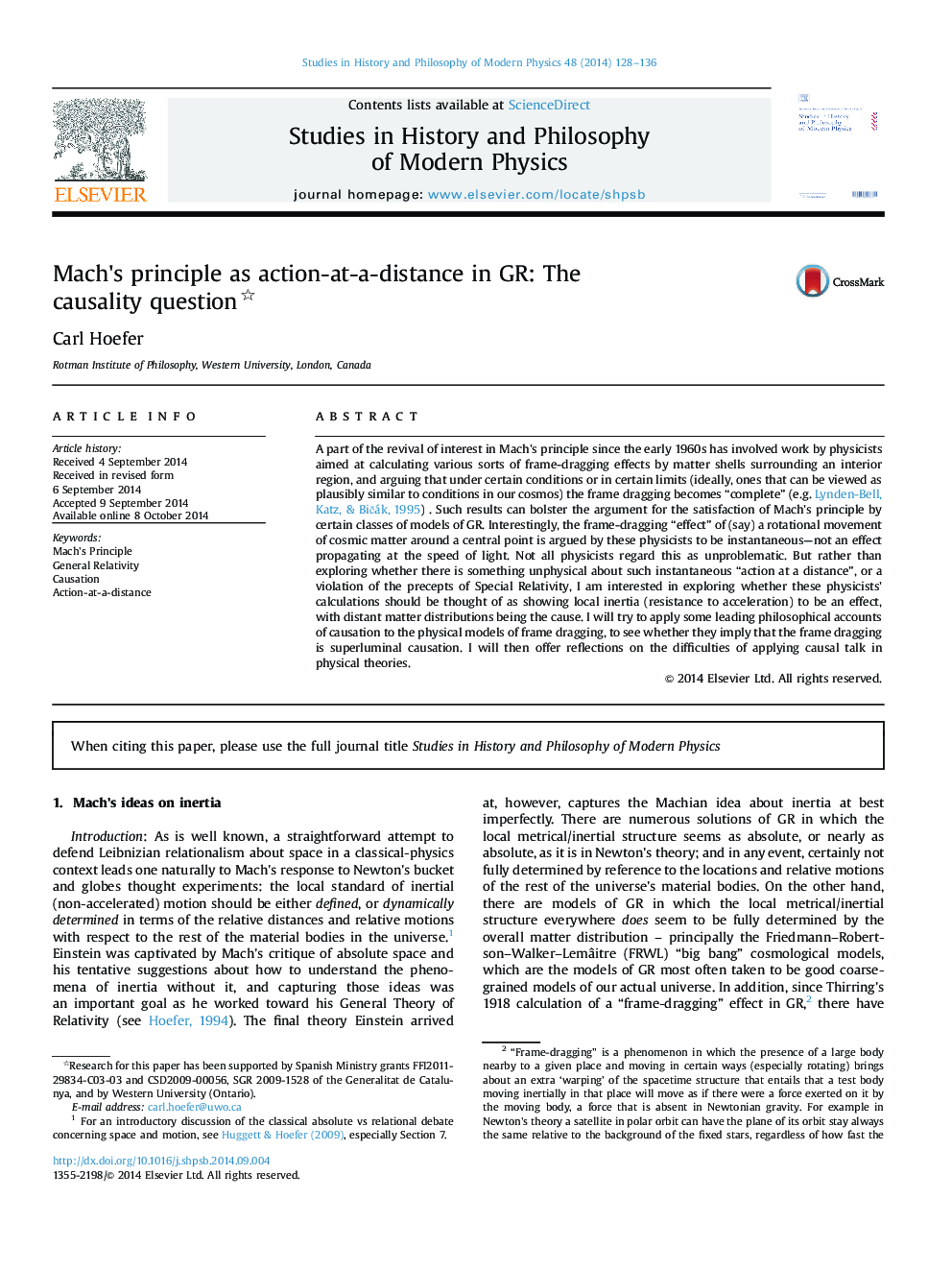| Article ID | Journal | Published Year | Pages | File Type |
|---|---|---|---|---|
| 1161508 | Studies in History and Philosophy of Science Part B: Studies in History and Philosophy of Modern Physics | 2014 | 9 Pages |
•Mach׳s principle seems to be implemented in some models of General Relativity.•Inertia may appear to be “caused” instantaneously, superluminally.•Analyzing this question using prominent theories of causation yields unclear results.•However, local Machian frame-dragging effects can be understood causally.
A part of the revival of interest in Mach׳s principle since the early 1960s has involved work by physicists aimed at calculating various sorts of frame-dragging effects by matter shells surrounding an interior region, and arguing that under certain conditions or in certain limits (ideally, ones that can be viewed as plausibly similar to conditions in our cosmos) the frame dragging becomes “complete” (e.g. Lynden-Bell, Katz, & Bičák, 1995) . Such results can bolster the argument for the satisfaction of Mach׳s principle by certain classes of models of GR. Interestingly, the frame-dragging “effect” of (say) a rotational movement of cosmic matter around a central point is argued by these physicists to be instantaneous—not an effect propagating at the speed of light. Not all physicists regard this as unproblematic. But rather than exploring whether there is something unphysical about such instantaneous “action at a distance”, or a violation of the precepts of Special Relativity, I am interested in exploring whether these physicists׳ calculations should be thought of as showing local inertia (resistance to acceleration) to be an effect, with distant matter distributions being the cause. I will try to apply some leading philosophical accounts of causation to the physical models of frame dragging, to see whether they imply that the frame dragging is superluminal causation. I will then offer reflections on the difficulties of applying causal talk in physical theories.
